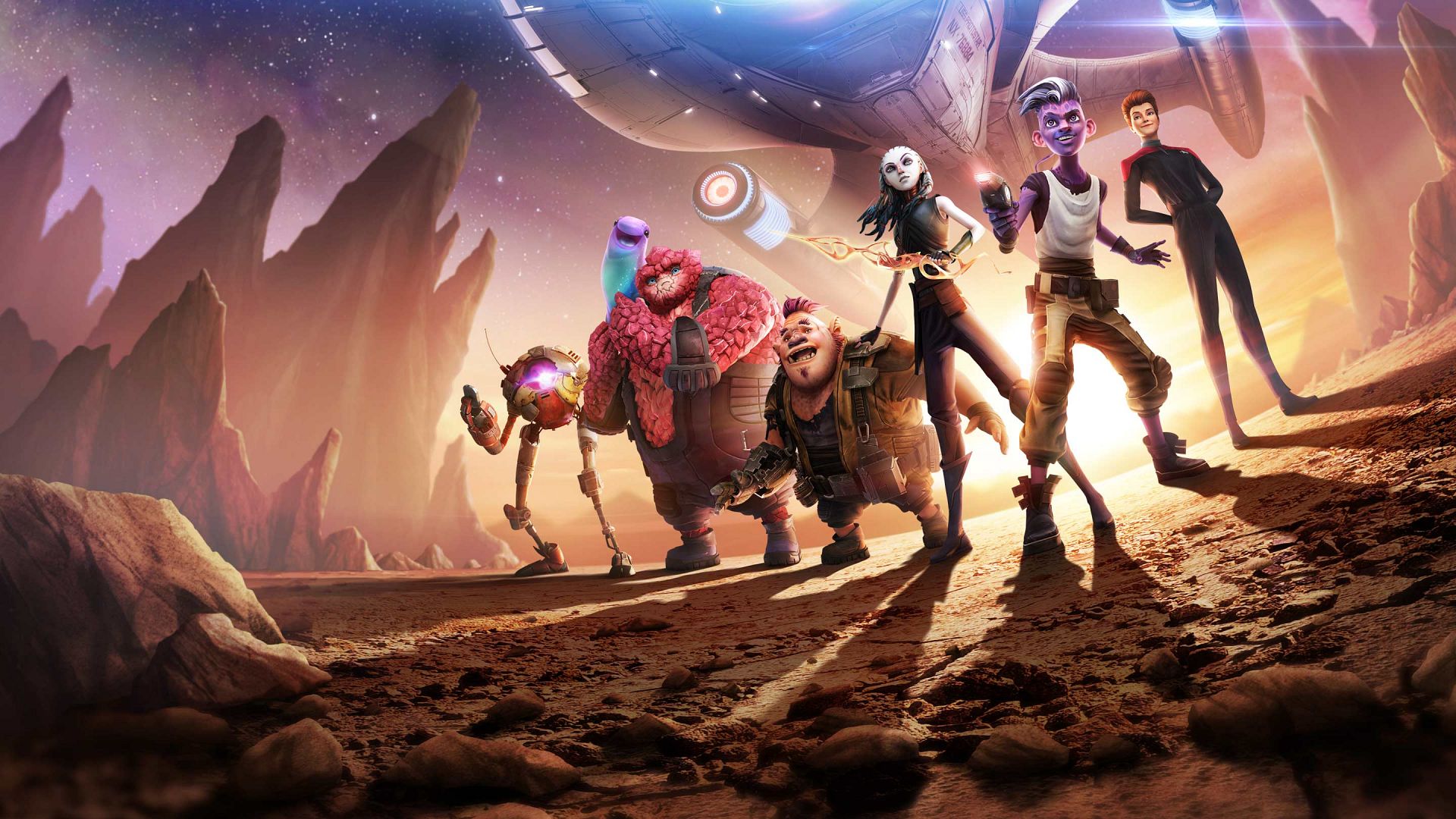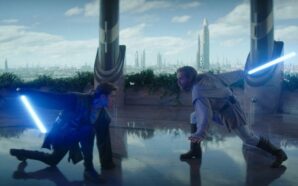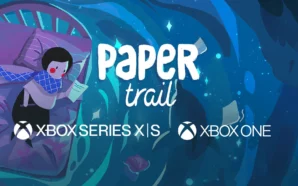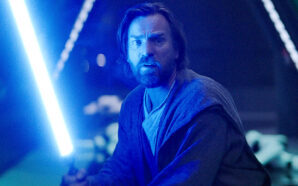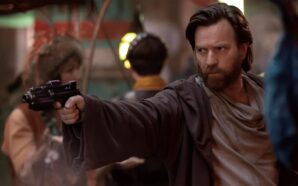Prodigy has all the identifiers of modern Star Trek: A megalomaniacal villain; prominent action sequences; an apocalyptic plot with galactic, Federation-threatening stakes; a final big battle featuring as many ships that can possibly fit onscreen. Everything I have grown tired of from recent instalments of the franchise. Yet Prodigy, the animated kids’ show on Nickelodeon, above the wannabe prestige drama live action shows, is the first series that actually makes it all work. I love the first season of Star Trek: Prodigy.
Prodigy is able to deftly negotiate the delicate balancing act between old and new, serialised and anthology. Each episode feeds into the overall plot, further revealing mysteries and driving the serialised narrative forward, while also acting as a standalone adventure like a Star Trek episode of old. They are character stories and moral lessons with cool sci-fi ideas solved by science and understanding. It feels silly to get excited over something that should be obvious and a given for the franchise, but it’s been too long since these ideas were at the heart of Star Trek.
Yet Prodigy may not seem like Star Trek at first, intentionally so. This may turn some viewers off after the two-part premiere but give it a few episodes and I’m sure it’ll win most round. The nature of the story being told makes it necessary for it to feel like an almost generic sci-fi action show for the first couple of episodes. This is a series about a gang of teens stealing a Starfleet ship to escape a prison planet; rough characters being steadily polished by Federation ideals as they travel the stars. We need to seem them at their most un-Starfleet for the transformation to be effective. It’s a little Star Wars-y at first, with protagonist Dal being like Ezra from Rebels, the street rat searching for his parents, and co-lead Gwyn feeling like Omega from The Bad Batch, a clone rebelling from her homeworld. But from about the fourth episode onwards it quickly starts to become a genuinely great Star Trek show.
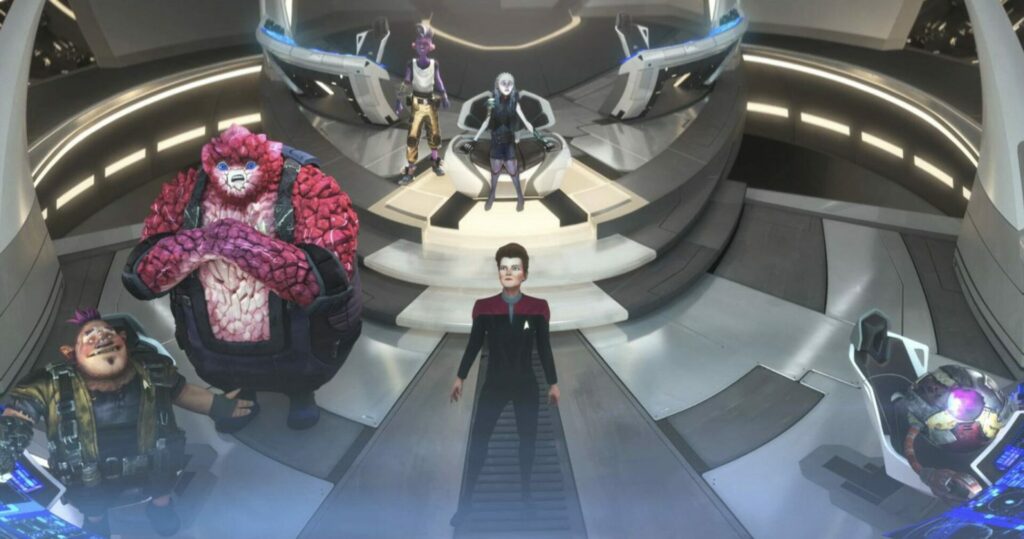
The ragtag crew of the USS Protostar go on adventures under the tutelage of a hologram of Captain Janeway from Voyager and learn each week how to behave like Starfleet officers. Barring the occasional two-parter, each episode is a 22-minute story unto itself, a little moral adventure with a neat sci-fi idea which isn’t ‘solved’ with nebulous ideas such as ‘faith’ and ‘love’ like in Discovery. With so much of modern Star Trek feeling like a movie stretched over ten or more episodes, awkwardly plotted, this is deeply refreshing. The episodes and their themes may sometimes be a little simplistic but maybe that’s what the franchise needs right now; to strip everything back to what truly matters. They are potent Star Trek messages condensed so kids can enjoy them but can also act as moral booster shots for existing adult fans. This isn’t just a kids’ show, it’s a family show accessible to all, guilt-free for older viewers.
What’s better is that the characters actually grow with each adventure. The crew in the first episode are not the same kids as those in the finale. They evolve (literally in one case) drastically. In this way, Prodigy can do one better than the older shows, which had to maintain a status quo for hundreds of episodes. Here there is actual development, alongside the action sequences and overall narrative, which thankfully don’t dominate. Time Amok is probably my favourite episode because it uses a cool sci-fi time warp idea in service of characterisation. All the World’s a Stage is full of TOS jokes and references but utilises them in a clever way to explore the repercussions of the Prime Directive at a time where the characters need to learn it. Any other modern show and these references to older shows are mere shallow fan service. Ghost in the Machine is a holodeck malfunction episode which initially seems like a strange aside before becoming vital in terms of character growth and the overall narrative with its twist ending. It’s so great to have thought-out storytelling in a new Star Trek series.
Perhaps the weakest instalment of the first season is the Borg episode but they still did the impossible: create a new interesting reason for a Borg story. I rolled my eyes when the Borg Cube appeared onscreen because they are such a tired villain in the franchise. Every season of Picard has featured them, none effectively, and it’s been so long since they were scary or clever. Yet Prodigy offers a new twist. The crew need access to their technology which nullifies weapons, something back from their original TNG episodes. It was also cool to finally see different species as Borg, utilising the potential of animation, which is refreshing after all the assimilated humans in the other shows. I consider it the worst episode because the resolution is poor and the character beats bungled but there are still good ideas at play. When this is the worst episode of the season then you know it’s a damn strong season.
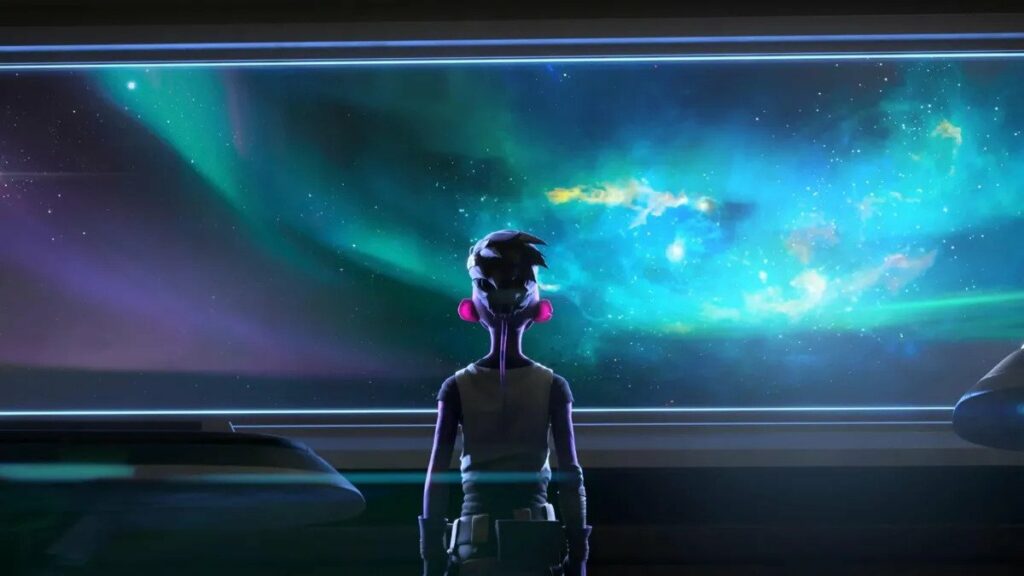
In regards to nostalgia, Prodigy maintains a decent balance of old and new. There are plenty of legacy characters and most of them make sense in the capacity they appear. I’ve never been a massive Voyager fan, it’s fine, and Prodigy has made me care about Janeway far more than that original show. Even Chakotay is intriguing now, an almost impossible feat. The show also manages to make Starfleet the antagonists for half of the season in a successful way. The conflict is born from misunderstanding and opposing motivations which make sense. Starfleet and the Federation always remain a shining beacon for the teen characters, who desperately want to join. It’s wonderful the show can get create conflict with Starfleet while still being utterly reverent towards it. It’s not presented as the disappointing institutional failure other modern shows have damned it as being.
Prodigy is often a beautiful show. Any planetary or intergalactic vista is stunning to look at, as are the ships. The character animations are however a bit janky. Hopefully in years to come we can look back on this first season like we do on the beginning of Star Wars: The Clone Wars – a decent foundation to build from, with the quality at another level by the time of the final season. The full beauty the show offers can be seen in the opening credits which, honestly, and I know it’s a big claim, might be my favourite of the franchise. It’s visually stunning, keeps the classic style of a ship travelling the galaxy but mixes it up by having the galactic bodies it flies past be representative of the characters, and Michael Giacchino’s theme is heavenly. It pains me we probably won’t get a fourth Kelvin timeline film with him scoring but this makes up for it.
So, when Prodigy gets to the big battle in the finale, when the baddie with the convoluted backstory unleashes his doomsday device, for the first time I care. I still wish Star Trek could find some other, more interesting finale for all its modern stories, but the show actually has smaller, personal stakes that keep me invested. I care what happens to these characters. This is the first crew since Enterprise I properly care about. Prodigy is a show with great heart, carefully cultivated over the season. There were moments where I felt legitimately emotional during the ending, which is the blatant goal of modern melodramatic Star Trek but here it succeeds where other shows fail because the writers have put the work in. It’s earned.
Thankfully this isn’t the very end and a second season is on the way; I can’t wait to see where they take this show. I began Prodigy expecting more of the modern Star Trek I’ve grown tired of and it became something far superior. This first season is not only the best Star Trek in years but one of my favourite seasons in the entire franchise.
What are your thoughts on Star Trek: Prodigy? Let me know in the comments and be sure to geek out with me about TV, movies, and video-games on Twitter @kylebrrtt.




